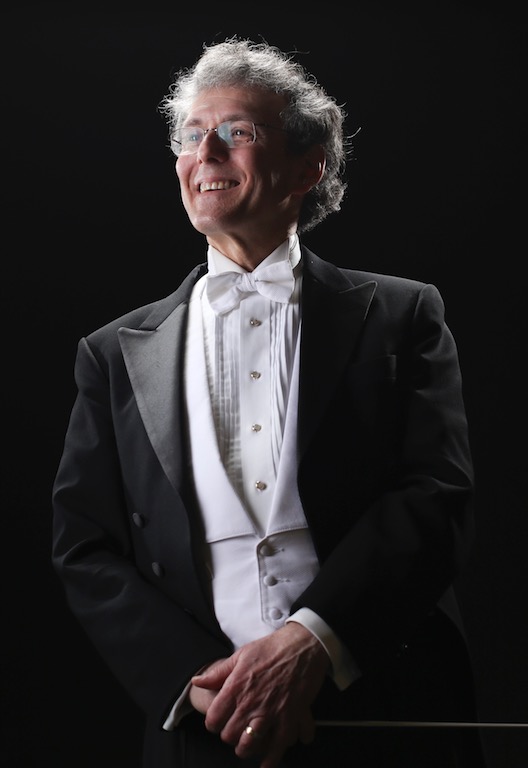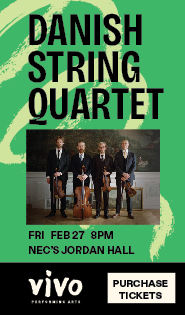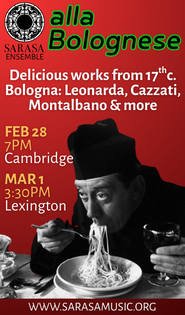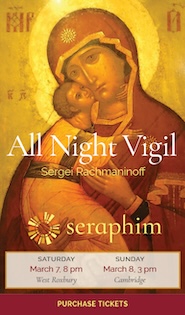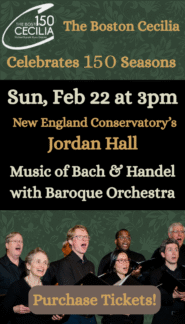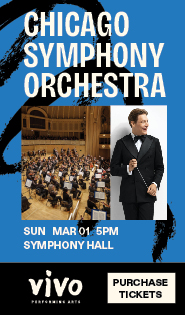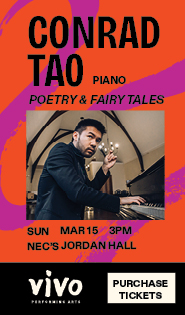Boston Baroque opens 50th season with Bach’s majestic Mass in B minor
The Mass in B minor was the culmination of Bach’s religious and artistic life. A marvel of rhetorical flourish, the score weaves together lyrical beauty and operatic intensity to relay an overall message: life is hard, humans are fallible, and solace can only be achieved by appealing to the Almighty.
For conductor Martin Pearlman and Boston Baroque, the beloved score conveys desperation as much as the sublime. Both were keenly felt Saturday night when Bach’s epic work opened the ensemble’s 50th season at WGBH’s Calderwood Studio.
Rapt intensity was evident from the onset. Pearlman’s steady direction revealed the pathos from the opening Kyrie, with every line coming across clearly.
Yet the conductor made every shift in mood unfold with natural ease. The energies of the “Gloria” found release in the soft strains of the “Et in terra pax.” Pearlman shaped the phrases with gentle dynamics that never tipped the ensemble balance. That sensitivity made the “Gratias agimus tibi” into a true song of thanksgiving. The “Et incarnates est” and “Crucifixus” relayed utter despair, the “Et resurrexit” bold and sudden elation.
But the chorus took time to find an ideal sound given the studio’s dry acoustic. Tentative entrances early on marred an otherwise fine blend. Those issues resolved in the “Cum Sancto Spiritu,” which the singers performed with zest and precision.
Pearlman realized the full dimensions of the later movements. The fiery exuberance of the “Confiteor” faded into the mysterious “Et expecto,” each phrase a direct response to the last.
The stellar cast of soloists highlighted the work’s subtleties.
Amanda Forsythe remains one of the best interpreters of this repertoire. Her soprano is light and dexterous, yet capable of probing mystery. She melded her voice beautifully with soprano Sonja DuToit Tengblad in the “Christe,” a quiet cry for salvation.
One of Boston’s best singers, Tengblad found understated grace in her brief solo moments. Her rich, chocolatey voice complemented Christina Day Martinson’s silvery violin line in the “Laudamus te.”
Nicholas Phan channeled similar depth, his clarion tenor well suited to the soft urgencies of the “Benedictus.” He and Forsythe also found the delicacies of the “Domine Deus.”
Mezzo-soprano Tamara Mumford made the “Agnus Dei” into a prayerful plea for divine intervention. Her dark tone also allowed for the poignant sorrows of the “Et in unum Deum Dominum” and “Qui sedes” to linger affectingly.
Bass Kevin Deas conveyed sweetness as much as power. “Et in Spiritum Sanctum” took on the warmth of professed faith, the “Quoniam” a bold assurance in things to come.
Bach expressed such reverence through the instrumental writing, and Boston Baroque’s period instrument orchestra revealed every nuance. The strings played with a plush sonority while teasing the energy from all the right places. Brisk tempos and crisp rhythms enhanced the chorus’s lilt in the antiphonal “Osanna.”
Instrumental soloists were superb. Flutist Joseph Monticello matched Phan’s warmth in the “Benedictus,” while hornist Todd Williams’s gracefully supported Deas in the “Quoniam.” Trumpeters Justin Bland, Jesse Levine, and Vincent Monaco played with a celebratory zeal fit for this golden anniversary season.
The program will be repeated 3 p.m. Sunday at Jordan Hall. baroque.boston
Posted in Performances
